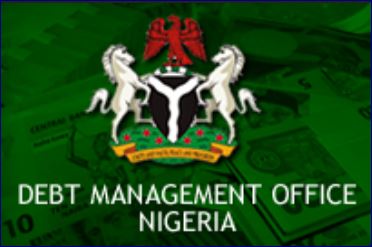Economy
Nigeria’s Borrowing Spree, Any Cause for Worry?


By Afrinvest
A new report by Afrinvest has taken a look into the recent borrowings by the Federal Government through the sale of bonds.
Afrinvest, in its weekly update, noted that much has been said on Nigeria’s aggressive borrowing spree from domestic and international capital markets since 2016, and deservedly so.
Since the start of a prolonged global oil price drop in H2:2014, the Nigerian economy has recorded a significant downturn in performance as plummeting government revenues and the resultant FX crisis dragged the economy into its first recession in 25 years.
As a result, an expansionary budget of N6.1tn was adopted in the 2016 fiscal year to boost growth and fund more capital projects, with a deficit of N1.8tn estimated for the period. No thanks to the resumption of oil militancy in February 2016 and substantial underperformance of non-oil revenue relative to projections, actual FGN retained revenue was 18.0% short of target, thus deficit widened further. In order to plug this deficit, the Federal Government embarked on an aggressive borrowing spree and this has been sustained into 2017.
To this end, the Debt Management Office (DMO) decided to alter the public debt mix by leveraging on relatively underexplored foreign currency borrowing capacity.
Multilateral loans were sought from the AFDB (US$646.6m) in addition to bi-lateral loans from the China EXIM Bank, France AFD and Japan JICA.
Following improvements in domestic investment landscape at the turn of the year, Nigeria returned to the International capital market after a 3-year hiatus, successfully raising US$1.5bn via Eurobonds and US$300.0m in diaspora bond.
On the domestic front, the DMO has continued with its monthly bond auctions and took it a step further by introducing atypical bonds such as the Savings Bond and a N100.0bn Sukuk offering closing today.
The 2017 budget is projecting another record expenditure year, with fiscal deficit estimated at N2.4tn – domestic borrowing accounting for 53.0% (N1.3tn) of the total while foreign borrowing was projected at N1.1tn.
Whilst the deficit funded expansionary fiscal policy pursued in 2016 had a positive impact of growth – as seen in GDP by expenditure numbers in 9M:2016 – it has come at a cost as public debt profile has remained on the uptrend over the years.
According to the DMO, FGN total debt stood at N10.9tn as of year-end 2015 but has risen an astonishing 48.1% in 15 months to N16.2tn in Q1:2017.
The rising debt profile is not surprising given the widening budget deficit and large depreciation of the Naira; however, the cost of servicing the mounting obligations took up more than 60.0% of revenue in H1:2016 and has become a major source of concern on debt sustainability.
The major argument for increased deficit spending is that the economy is underleveraged with a debt to GDP ratio of 20.0%, but also hard to ignore is the offsetting low non-oil revenue to GDP ratio. Nigeria’s Tax/GDP ratio is 6.0%, which is relatively low when compared to SSA peers – South Africa (26.2%) and Kenya (15.4%).
The nation’s tax collection and administration system is still deemed inefficient with multiple tax system and a high tax evasion & avoidance rate.
Despite the recent drive to increase tax revenue, not much has changed in terms of actual results. In fact, federally collected Non-oil revenue fell 4.4% in FY:2016 to N3.0tn. To their credit, fiscal authorities have doubled down on tax reforms including the recently launched Voluntary Asset and Income Declaration Scheme (VAIDS) which grants taxpayers a time-limited opportunity to regularise their tax status without penalty.
However, with the economy challenged, the odds of significantly boosting Tax revenue in the near term is slim and we expect budget deficits to remain high for the next 2-3 years. What does this imply for medium term debt sustainability? Our opinion on this is a bit nuanced. The structure of Nigeria’s public debt is heavily tilted towards the domestic market (up to 77.9% of aggregate debt) and this easier to deal with in the event of a credit crisis.
Foreign debt obligations are also mostly multilateral and bilateral in nature (78.0% of total foreign debts) which are typically long tenured and granted at concessionary rate.
Thus, we do not expect a debt crisis in the near term but policymakers will need to further diversify revenue base or start deleveraging to avert one in the medium term.
Source: Afrinvest
Economy
Naira Weakens to N1,547/$1 at Official Market, N1,670/$1 at Black Market

By Adedapo Adesanya
The euphoria around the recent appreciation of the Naira eased on Wednesday, December 11 after its value shrank against the US Dollar at the Nigerian Autonomous Foreign Exchange Market (NAFEM) by N5.23 or 0.3 per cent to N1,547.50/$1 from the N1,542.27/$1 it was valued on Tuesday.
It was observed that spectators’ activities may have triggered the weakening of the local currency in the official market at midweek as they tried to fight back and ensure the value of funds in foreign currencies strengthened.
The domestic currency was regaining its footing after the Central Bank of Nigeria (CBN) launched an Electronic Foreign Exchange Matching System (EFEMS) platform to tackle speculation and improve transparency in Nigeria’s FX market.
At midweek, the Nigerian currency depreciated against the Pound Sterling by N3.56 to close at N1,958.68/£1 compared with the preceding day’s N1,955.12/£1 and against the Euro, it slumped by 34 Kobo to trade at N1,612.66/€1, in contrast to the previous session’s N1,613.00/€1.
As for the black market segment, the Naira lost N45 against the American currency during the session to quote at N1,670/$1 compared with the N1,625/$1 it was traded a day earlier.
A look at the cryptocurrency market showed a recovery following profit-taking as the US Consumer Price Index report matched economist forecasts.
The news was enough to convince traders that the Federal Reserve is certain to trim its benchmark fed funds rate another 25 basis points at its meeting next week.
The move also saw Bitcoin (BTC), the most valued coin, return to the $100,000 mark as it added a 2.9 per cent gain and sold for $100,566.12.
The biggest gainer was Cardano (ADA), which jumped by 15.00 per cent to trade at $1.16, as Litecoin (LTC) appreciated by 10.4 per cent to sell for $121.76, and Ethereum (ETH) surged by 7.0 per cent to $3,929.30, while Dogecoin (DOGE) recorded a 6.7 per cent growth to finish at $0.4181.
Further, Binance Coin (BNB) went up by 5.2 per cent to $716.72, Solana (SOL) expanded by 4.6 per cent to $229.77, and Ripple (XRP) increased by 4.2 per cent to $2.43, while the US Dollar Tether (USDT) and the US Dollar Coin (USDC) closed flat at $1.00 apiece.
Economy
Dangote Refinery Makes First PMS Exports to Cameroon

By Aduragbemi Omiyale
The Dangote Refinery located in the Lekki area of Lagos State has made its first export of premium motor spirit (PMS) just three months after it commenced the production of petrol.
In September 2024, the refinery produced its first petrol and began loading to the Nigerian National Petroleum Company (NNPC) on September 15.
However, due to some issues, the facility has not been able to flood the local market with its product, forcing it to look elsewhere.
In a landmark move for regional energy integration, Dangote Refinery has partnered with Neptune Oil to take its petrol to neighbouring Cameroon.
Neptune Oil is a leading energy company in Cameroon which provides reliable and sustainable energy solutions.
Dangote Refinery said this development showcases its ability to meet domestic needs and position itself as a key player in the regional energy market, adding that it represents a significant step forward in accessing high-quality and locally sourced petroleum products for Cameroon.
“This first export of PMS to Cameroon is a tangible demonstration of our vision for a united and energy-independent Africa.
“With this development, we are laying the foundation for a future where African resources are refined and exchanged within the continent for the benefit of our people,” the owner of Dangote Refinery, Mr Aliko Dangote, said.
His counterpart at Neptune Oil, Mr Antoine Ndzengue, said, “This partnership with Dangote Refinery marks a turning point for Cameroon.
“By becoming the first importer of petroleum products from this world-class refinery, we are bolstering our country’s energy security and supporting local economic development.
“This initial supply, executed without international intermediaries, reflects our commitment to serving our markets independently and efficiently.”
Economy
Strong Investor Sentiment Keeps NGX Index in Green Territory by 0.31%

By Dipo Olowookere
The Nigerian Exchange (NGX) Limited remained in the green territory on Wednesday after it rallied by 0.31 per cent on the back of sustained bargain-hunting activities by investors.
Business Post reports that all the key sectors of the market closed higher at midweek as a result of the renewed interest in local equities.
Data showed that the energy index appreciated by 2.59 per cent, the insurance space grew by 2.34 per cent, the industrial goods sector improved by 0.15 per cent, the banking counter expanded by 0.06 per cent, and the consumer goods industry rose by 0.04 per cent.
At the close of business, the All-Share Index (ASI) gained 302.71 points to settle at 98,509.68 points compared with Tuesday’s closing value of 98,206.97 points and the market capitalisation added N183 billion to close at N59.715 trillion versus the preceding day’s N59.532 trillion.
It was observed that the level of activity yesterday waned as the trading volume, value and number of deals decreased by 65.93 per cent, 49.22 per cent, and 12.70 per cent, respectively.
On Wednesday, a total of 320.1 million stocks valued at N6.5 billion were transacted in 7,943 deals, in contrast to the 939.4 million stocks worth N12.8 billion traded in 9,098 deals.
The busiest equity at midweek was eTranzact, which transacted 70.3 million units for N474.2 million, Universal Insurance traded 23.8 million units worth 8.1 million, Zenith Bank exchanged 21.2 million units valued at N933.5 million, FBN Holdings sold 18.6 million units worth N491.2 million, and UBA traded 14.0 million units valued at N465.8 million.
At the close of transactions, 34 shares ended on the gainers’ log and 17 shares finished on the losers’ chart, representing a positive market breadth index and strong investor sentiment.
Africa Prudential gained 10.00 per cent to quote at N14.30, Conoil also improved by 10.00 per cent to N352.00, and RT Briscoe expanded by 10.00 per cent to N2.42, as Golden Guinea Breweries jumped by 9.95 per cent to N7.18, while NEM Insurance grew by 9.74 per cent to N10.70.
However, Julius Berger lost 10.00 per cent to close at N155.25, Secure Electronic Technology shed 9.52 per cent to trade at 57 Kobo, Multiverse declined by 7.63 per cent to N5.45, Haldane McCall tumbled by 6.07 per cent to N4.95, and Honeywell Flour crashed by 5.62 per cent to N4.70.
-

 Feature/OPED5 years ago
Feature/OPED5 years agoDavos was Different this year
-
Travel/Tourism8 years ago
Lagos Seals Western Lodge Hotel In Ikorodu
-

 Showbiz2 years ago
Showbiz2 years agoEstranged Lover Releases Videos of Empress Njamah Bathing
-

 Banking6 years ago
Banking6 years agoSort Codes of GTBank Branches in Nigeria
-

 Economy2 years ago
Economy2 years agoSubsidy Removal: CNG at N130 Per Litre Cheaper Than Petrol—IPMAN
-

 Banking2 years ago
Banking2 years agoFirst Bank Announces Planned Downtime
-

 Sports2 years ago
Sports2 years agoHighest Paid Nigerian Footballer – How Much Do Nigerian Footballers Earn
-

 Technology4 years ago
Technology4 years agoHow To Link Your MTN, Airtel, Glo, 9mobile Lines to NIN











